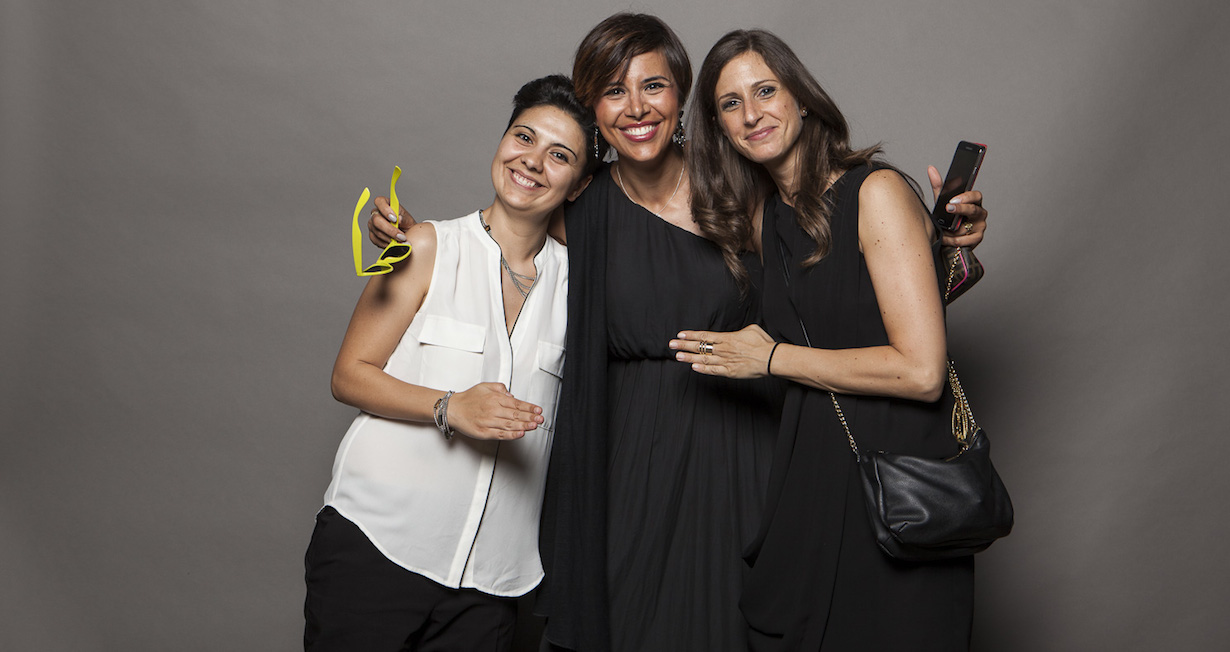
[students’ journal] September
25 September 2015What is it like to be a student at BBS? Here is where they have their say on campus life, tips of Bologna, and much more. Written by and for the Students.
Read here the other posts published.
Hack the Wine – Pitch and Go!
H-Farm in Roncade Treviso, saw another hackathon take place; a 24-hour marathon where professional Marketers, Developers, and Designers come together in order to develop a marketing idea and an application or online platform for the needs of the presenting companies. Innovative ideas and how to develop them is becoming an indispensable resource for traditional based companies looking to expand their business. H-Farm is Italy’s largest start-up accelerator and together with Vinitaly International present H-Wine, a yearly hack on the Italian Wine Sector.
The four wineries this year: Tommasi Family Estate, Santa Margherita, Zonin 1821 and Col Sandago – Case Bianche put the eager hackers to test, each with a very different brief. Tommasi were looking for a digital platform for their wine list that enhanced the experience of their product with restauranteurs as well as the final consumer, Santa Margherita – a digital tool to enhance the loyalty of wine lovers that can be utilised during the groups’ events, Zonin 1821 – an interactive digital tool to help the new generation discover the world of wine, and Col Sandago – Case Bianche – a digital platform to encourage new clients and the international public. In the words of Stevie Kim, the Managing Director of Vinitaly International; “consumers are indecisive, the culture of wine needs to modernised and youngsters need to become wine lovers. The revolution can only come from the web.”
And what a revolution! Over 24 teams presented their 3 minute pitch (with developed digital platforms) the next morning after a long and sleepless 24-hours. Most innovative ideas from bright minds shaped into reality. Team work and spirit is essential and heart of this initiative. It is most satisfying to see directors of companies acknowledge bright ideas. Winning teams are rewarded and offered an opportunity to work with the company and implement their ideas post hackathon. BBS encourage their MBA students to take part in such extra curricular activities in order to offer opportunities for us to formulate networks and participate in real working experiences and thus shaping us into graduating professionals. Colleagues, what an experience – formalise your career pitch and go, go and become successful!
Gabriella Di Clemente – South Africa
MBA Food and Wine – Class 2014/2015
September 18, 2015
Amarena Amore Mio!
It’s the typical cold, grey, rainy winter Monday in Bologna, but still, some MBA students have beaming smiles on their faces. What elicits this cheerful expression is a warm, gentle, mouth watering fragrance of toasted almonds coming out from the Fabbri production plant in Anzola dell’Emilia, Bologna. It is just the perfect way to start a visit to one of the oldest and most renowned Italian food companies. A quick wardrobe change is needed as visitors are compelled to wear white overalls and a hair cap. As we enter the plant we are escorted by one of the many skilful workers as well as the niece of the CEO Nicola Fabbri, Stefania Fabbri.
This facility is where Fabbri’s third generation established their production in the 60’s, in a building of over 180 thousand square meters. But don’t be fooled: machineries are up-to-date and completely capable to satisfy the current market’s need both in terms of capacity and efficiency.
The production plant is operating in six different sectors: powder mixes for gelato and pastry (Cremolati), Toppings, Syrups, Confectionery, and the most famous of all; the preparation of the amarena cherry. The facility is completed by a vast warehouse; 12 thousand square meters where ten people relentlessly stack and pack products to be delivered, coordinated by a radio system that leads them through the quickest path across dozens of shelves.
Fabbri is equipped with newest generation of machinery. The production capacity is just as big as the consumption of energy and resources; the plant everyday gulps down 400 thousand cubic meters of water, collected from a private pit and once utilized, is filtered to be put back again in the system.
Even if most of the job is executed by robots and machines, is still the tasting ability of the operators that makes the difference. During the production cycle of products such as toppings and syrups, operators must extract a sample from the batch to check the color and the taste in order to guarantee perfect results.
Needless to say, where the amarena is processed is where the human element matters the most. The process is quite long: placed in big round metal plates, amarene will boil for seven days, in order to complete the process of osmosis. This process allows the cherry to release all the water contained and incorporate the cooking water that is full of flavor. After the boiling, the amarene are divided in two batches: one of “opaline”, the perfectly round ones and one of superficially damaged ones, that will not enter the worldwide renowned white and blue jar but will serve as topping. Just to give you an idea how strategically important this product is to the company, the way Fabbri handles “opaline” is kept secret and we were not allowed to see the process. A secret tradition that has been perpetuated, protected and preserved since 1905, loved and cherished like a son: amarena amore mio!
Ph. Aarón Gómez Figueroa
Michele Bianchetti – Italy
MBA China Far East and Europe Business Relations – Class 2014/2015
September 11, 2015
Beer 101
Although wine is king here in Italy, the craft beer market has grown recently and represents a channel offering high-quality, local value-added products to consumers. The “Craft Beer Basics” workshop held here at Bologna Business School offered an informational look into the world of craft beer while allowing the Global MBA Food and Wine students to experience a variety of beers including quality craft ales presented by former MBA student, Luca Ghedini of Distillerie Tenute Collesi.
We began the workshop by sharing what beer signifies to each of us. Although we come from all around the globe, to each of us beer signified happy memories and togetherness. It was interesting to learn trends and popular beers in each of our countries. Luca shared with us what beers sell well in each market in the world and how the process of importing and exporting beers functions here in Italy.
The workshop included a blind tasting of two traditional lager beers, which allowed us to analyze the beer variation which currently makes up the largest amount of the world’s beer consumption, while providing a means to appreciate the complexity of the higher quality craft beers to follow. Craft beers are becoming more popular in Italy and are a unique way for value-added specialty products to portray a sense of character from a brewery.
The “Craft Beer Basics” workshop was an interesting and exciting experience of our MBA program here at Bologna Business School. We are fortunate to have opportunities like this tasting at BBS and thankful to have alumni still involved with the school and willing to invest in the future generations of Bologna Business School Food and Wine leaders.
Melissa Amato & Brian Kern – USA
MBA Food and Wine – Class 2014/2015




